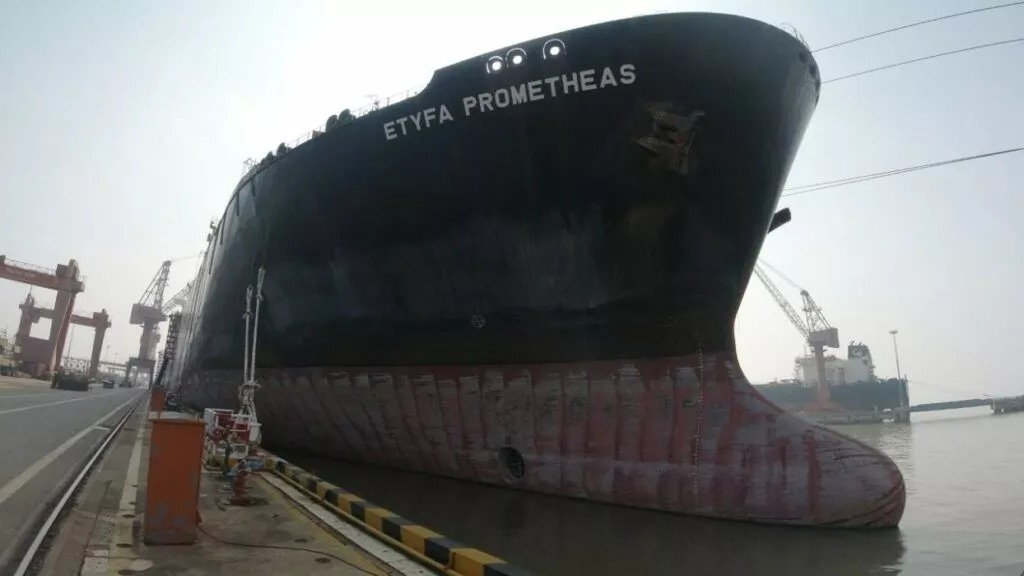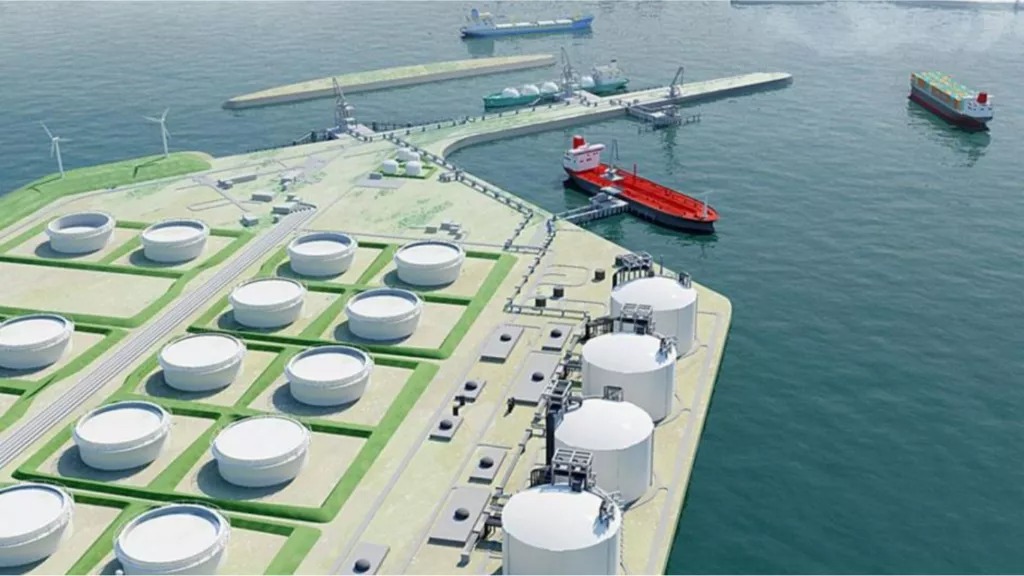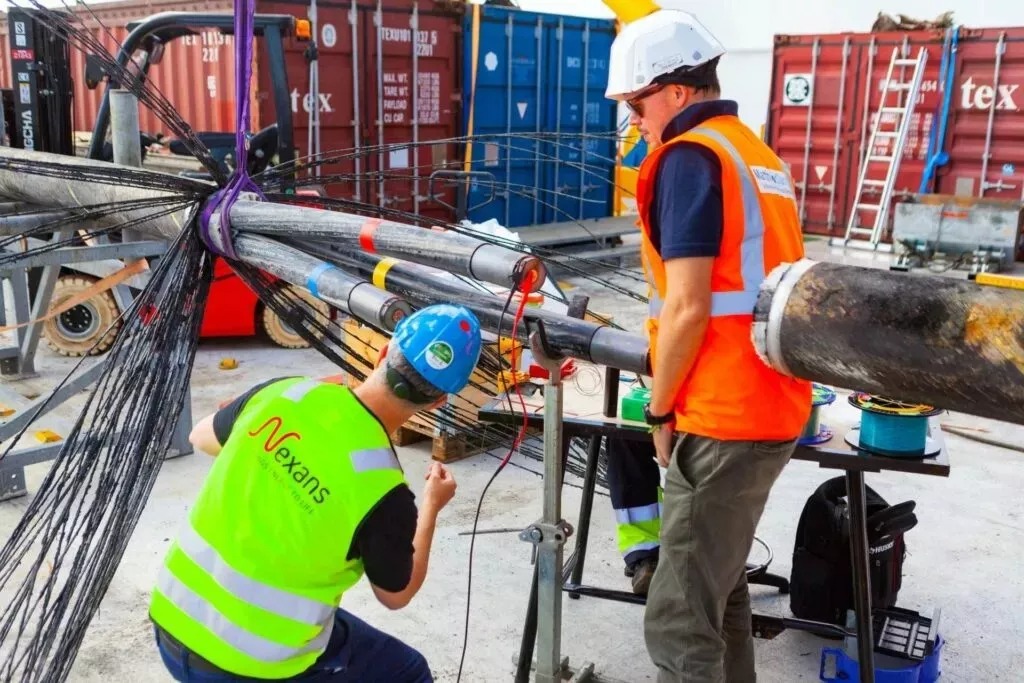Filenews 28 July 2024 - by Chrysanthos Manoli
The Christodoulides government has received an energy environment full of dystopia and dangers. However, he will not be judged by what he received, but by what he delivers. In the 16 months since the change in governance, much has been revealed and ascertained, much has been done to change the situation, but so far little has been corrected.
Yesterday's announcement by the Ministry of Energy on the decision of the European Commission to request from the Republic of Cyprus the return of €68.6 million. The amount granted to it for the construction of the natural gas regasification terminal (which means that not even the remaining €32.4 million of the total €101 million that was the announced sponsorship will be given) caused upset, concern and great disappointment in public opinion.
At the same time, it has intensified pressure from political parties and society to conduct an investigation in all directions to find out which officials and officials are responsible for awarding the tender for a EUR 550 million project. In a consortium that everyone realizes today was not able to carry out the development, at a time when the Auditor General had warned in good time, since 2019 and before the contracts were signed, that there were illegal decisions and evaluations by DEFA at the stage of evaluation and award.
The European Commission, assessing a report by the European Court of Auditors, considers that there were two material violations: The first concerns the criteria for awarding the tender to this consortium (December 2019) and the second concerns the signing of the bilateral agreement upon the approval of the additional €25 million (June 2022). The granting of the additional €25 million. The consortium, which cited increased raw material costs due to the coronavirus, had been pre-approved by the Anastasiades Government, but the final decision was taken by the Central Committee for Changes and Claims, again with the disagreement of the Auditor General.
Who will help the European Public Prosecutor's Office?
The publication last Thursday of the decision of the European Public Prosecutor's Office (EPPO) to request (since last March) an investigation into the gas terminal scandal has not at all offended the outcry within society. The direct involvement of the European Public Prosecutor's Office is considered by legal and political circles to prevent the Cypriot Government from announcing a criminal investigation itself.
However, the Government is not absolved of its responsibility for the fact that the police authorities, who are obliged to promote the investigation on behalf of the European Public Prosecutor's Office, do not seem to have done anything substantial since March. It was announced that documents were received and are being studied by the Audit Office, without any reference to the documents and other material -in electronic form- that exist or were rescued in other services, such as DEFA, the Ministry of Energy, the Ministry of Finance, the Presidency and the Council of Ministers.
The role of DEFA and its then president
However, it is clear that the tangle will unravel with investigations that should focus in the first instance on DEFA and the decisions taken at the time in relation to the tender and the conditions set to interested investors. President of DEFA's Board of Directors at the time was Simeon Kassianidis. Of great interest is Mr. Kassianidis' correspondence with the Auditor General Osysseas Michaelides, who tried in vain with long letters and remarks to warn about the upcoming fiasco, asking for the cancellation of the tender and the announcement of a new one, with other terms. Mr. Kassianides and DEFA's board of directors insisted that no new offer be announced, something that was also accepted by the Anastasiades government, with the former president taking the political decision at a meeting at the Presidential Palace in December 2019 to put the signatures on the contract with the Chinese, regardless of the Auditor General's tendencies.
Moreover, the police did not say anything - although asked by journalists - whether statements were taken about the EPPO's investigation or whether interrogations had taken place. And everything converges on the safe conclusion that there were neither interrogations nor testimonies.
Decisions pending
The uproar over the decisions of the European Union regarding the fiasco in Vasilikos does not absolve the Government of the responsibility for urgently taking new decisions for the management of the project. But also decisions on the other major project (electricity interconnection) that is underway in the absence of the Government, but provides for a serious financial burden for citizens in the long run, without ensuring that a new major fiasco will be avoided, due to the technical and geopolitical challenges that exist.
The current government has to say that it is impossible to juggle much. Neither the natural gas terminal can be completed simply and quickly – as everything has been done – nor can the natural gas deposits in the Cypriot EEZ be traded after years of stagnation and distancing themselves from the companies that undertook their development, nor can EAC finally enter dynamically into renewable energy sources in order to lower average prices per kilowatt hour for all consumers. neither the electricity interconnection with Greece can be carried out without studies and difficult decisions and risks, nor can Dhekelia cease to be the Achilles' heel of the electricity system, nor can energy from photovoltaics be sold at cost-orientation prices, without ruptures.
But is the current government ready for ruptures? With vested and emerging interests? Can it subordinate bureaucracy to energy planning services? Can it overturn old decisions and make – and implement – new ones?
The LNG terminal in Vasilikos
It is possible that the grotesque events that have happened since 2019 and continue to happen around the liquefied natural gas regasification terminal in Vasilikos will be taught in the future at universities and polytechnics, so that the rest of the world can learn what a state should not do if it wants to acquire energy infrastructure quickly and at reasonable prices.
The current government tried but failed to give the kiss of life to a project that had been fighting for about three years. The time credit and trust initially shown in the so-called CMC consortium, consisting exclusively of the Chinese state-owned company CPP, did not work as expected. The company proved unwilling or even unable to implement the contract, as interpreted by DEFA and ETYFA.

Today, things are even worse than what the Christodoulides government received in March 2023. However, the Government cannot be blamed for this deterioration, since the completion of the fiasco was predetermined and was based on decisions of 2018-19 by the Anastasiades Government and even with the direct and decisive intervention of the former President himself.
CPP has already terminated the contract, which in any case only partially and periodically implemented. The construction site in Vasilikos has passed into the hands of ETYFA and procedures are underway to conclude a new separate agreement with the joint venture Multimarine Services and Spanopoulos Group, to undertake the completion of works on the terminal pier and land infrastructure. Can they do it? Yes, answer executives of companies, ETYFA, the Ministry of Energy. Therefore, what remains is to agree on the framework for cooperation with subcontractors, without bureaucratic delays. And, hopefully, without legal issues.
It is not known what the cost will be for the remaining works in Vasilikos, whether it will be determined on the basis of negotiations between the two sides or whether a negotiation process with other interested parties will be needed. What is certain is that to the total cost must now be added the €101 million budgeted that the European Commission will deprive ETYFA.
It is also not known how long it will take to complete the work. The possibility of completing the work in 2024 seems unlikely. Even if work starts now, it will take at least a year to deliver the infrastructure. Not counting the time for the construction of the pipeline network for the transport of natural gas from the onshore infrastructure of the terminal to the EAC and PEC stations. A tug-of-war is underway in the judiciary over the matter.
Will we take or rent another?
The big thorn, however, is not the infrastructure in Vasilikos, it is ETYFA's Prometheus FSRU, which remains trapped at Cosco's shipyard in Shanghai. CPP's abandonment of the project puts the company temporarily on the sidelines, although it still has a say in the fate of the FSRU Prometheus. At this stage, however, ETYFA is consulting with Cosco, which hosts the vessel, after having previously carried out the works for its conversion into a floating liquefied natural gas storage and regasification unit. Phileleftheros is informed that within the coming week a teleconference of the Cypriot authorities will take place, with the participation of both Cosco and CPP. The conference call will show "where are the Chinese going?"
In the coming days it will be seen whether the ship Prometheus will be able to sail to Cyprus or whether either Cosco, CPP or both will keep it as collateral until the financial disputes between them or ETYFA are settled.
So far, it is estimated that ETYFA has paid around €190 million only for the ship. Apparently he paid them to CPP. Which is asking for another €35 million, which is not justified by ETYFA. But has Cosco been paid by CPP for all the services it offered? It is not known at the moment, although there are reports that the relations between Cosco and CPP are not the best.
Energy Minister George Papanastasiou's statements last Thursday highlight a serious dose of pessimism about the prospect of ETYFA ending up in ETYFA's hands at this stage. According to reports, ETYFA does not receive clear positions from the Chinese authorities, nor from the companies involved Cosco and CPP, which magnifies the concern and pessimism.
Depending on developments, other decisions will be launched by ETYFA and the Ministry of Energy. If the situation develops on the basis of the undesirable scenario, it is certain that the Cypriot side will declare a legal war against anyone who obstructs the delivery and exploitation of Prometheus.

How does FSRU rental affect the cost-benefit ratio for natural gas?
A legal war against either CPP or anyone else would be time-consuming and costly. What happens in the meantime? Energy Minister George Papanastasiou has said that if it appears that the delivery of the Prometheus FSRU will be seriously delayed, the government will not stand idly by. He will come out on offers to explore the ground for the possibility of renting another FSRU and... to do her job until Prometheus is released. And moves in this direction are already underway. For renting another FSRU to make any workable sense, it must be ensured that works on the pier and ashore proceed without further problems.
However, a potential FSRU lease in addition to €190 million already paid for the Cypriot regasification plant would change the cost-benefit ratio for the LNG terminal, and the €101 million of the EU that ETYFA will have to repay? The Ministry of Energy and public and private technocrats insist that the economic benefit to the economy and consumers from using natural gas in electricity production will be much greater than any cost from building the terminal or renting a ship. This will be confirmed or denied (there are also opinions about little benefit from importing gas in very small quantities) when offers are received from interested companies. The preferred solution, however, is to resolve the dispute in Shanghai and officially hand over the ship to its owner, ETYFA
The electrical interconnection and CERA's decision
The electricity interconnection with Crete is becoming a serious problem for the Government. The celebrations and fiestas of former President Anastasiades just before the 2023 presidential elections for the "inauguration of the cable" proved to be yet another communication fiasco, if not a deception of public opinion.
The electrical interconnection was only on paper. The change in the implementing body in October 2023 revived hopes for the realization of the interconnection, since the cable is already being built by Nexans in Norway, but ADMIE, as a new implementer, proved to be a tough and very demanding negotiator, so today the project is in the air.
ADMIE itself states this, threatening that if CERA does not accept by mid-August to start recovering its costs for the cable through electricity bills from 1/1/2025, the project will not proceed. At the time of writing, it was not known whether CERA is willing to backtrack disorderly and accept what it rejected on July 2, 2024. And it was also not known whether ADMIE would follow through on its warning and stop the construction of the cable or whether it would decide to finance with equity or loans the initial stages of the project, until consumers are charged and its costs recovered.
It is almost taken for granted that one of IPTO's demands, the pass-on to consumers of €100 million, is not a given which was initially decided to be given as a sponsorship by the Republic of Cyprus for the implementation of the project, will be accepted. But is this enough for IPTO? No.
Will CERA accept a commitment that it will not retain the discretion to approve or reject IPTO's expenses in case the project fails due to a serious "external risk", of a geopolitical nature? Difficult, as in all its decisions CERA always makes sure to maintain a safety valve in the form of a required final approval on its part. Because there is always a need to consider the reasonableness of any request by a regulated undertaking to impose a financial burden on consumers.
Will CERA accept to start recovering IPTO's expenses from 1/1/2025 by burdening consumers with an average of 0.6 cents per kilowatt hour over the next four years? It will depend to a significant extent on the study that PwC will prepare for CERA, which is currently evaluating the additional data and the repayment model submitted by IPTO.
CERA's decision is expected to be taken by August 9. On August 12, another teleconference is set between the regulators of the two countries, the two energy ministries, ADMIE and the EU Directorate General for Energy.

Will the state invest?
Regardless of CERA's decision, there remains another important outstanding issue for the electricity interconnection. The Ministry of Energy requested expressions of interest from design firms for the evaluation of the cost-benefit analysis prepared for IPTO by Exergia.
The content of the evaluation will obviously influence the final decision of the Council of Ministers whether the state will invest with EUR 100 million. to the share capital of Great Sea Interconnector, the special purpose vehicle established by ADMIE to take over as the operator of the electricity interconnection.
The Ministry of Finance has reservations about this investment, but the Ministry of Energy favours it, as it will give the state a role and a say in the execution of the project, which is considered to be of strategic importance for the Republic of Cyprus.
Although the energy minister said in early July that it would take about three months for the Council of Ministers to make a final investment decision, it is very likely that more time will eventually be needed.
